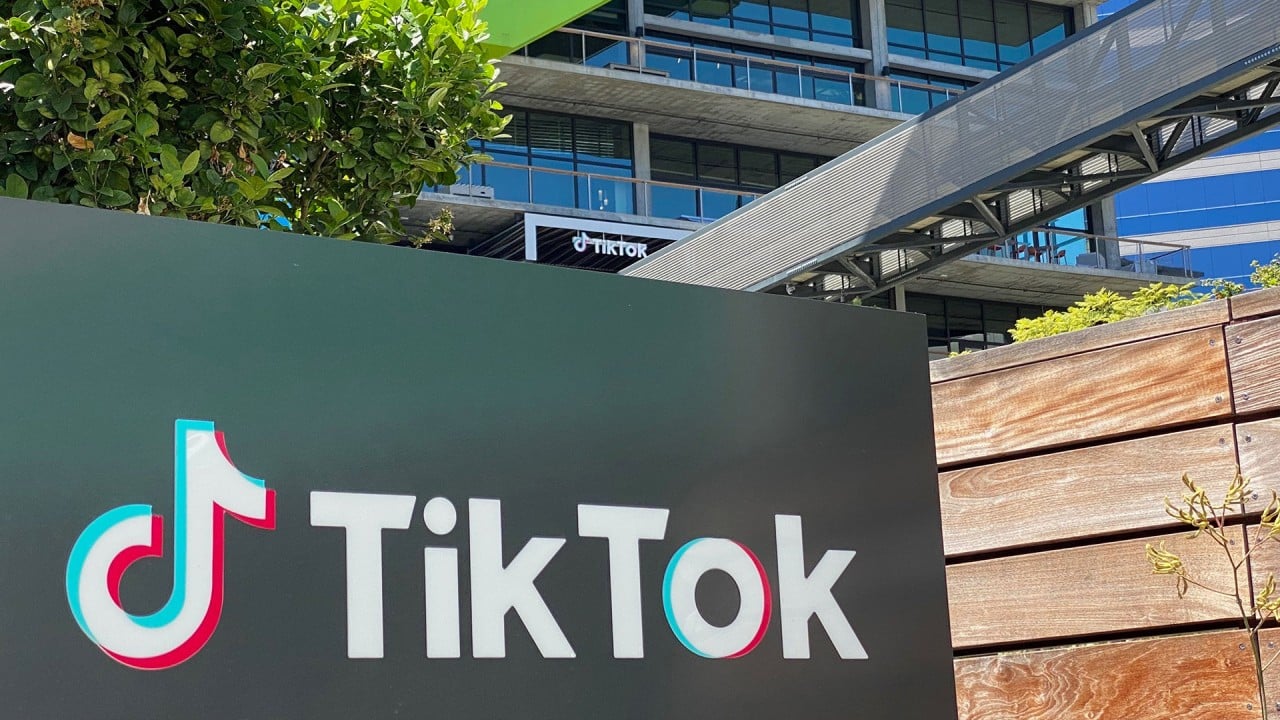
Donald Trump asks US court to let ban on Chinese app WeChat to proceed
- Judge earlier issued preliminary injunction after app’s users argued that president’s prohibitions trampled free-speech rights of Chinese-speaking Americans
- Trump has ordered WeChat, which has 19 million US users, to be removed from American app stores on Sunday
US Magistrate Judge Laurel Beeler issued a preliminary injunction on September 19 at the behest of users who argued those prohibitions trampled the free-speech rights of millions of Chinese-speaking Americans.
The app, which was supposed to disappear from American stores on Sunday, hosted 19 million regular users in the country and more than a billion worldwide.

06:02
Global expansion of TikTok and other Chinese tech companies is likely, only not in the West
“The Court’s preliminary injunction permits the continued, unfettered use of WeChat, a mobile application that the Executive Branch has determined constitutes a threat to the national security and foreign policy of the United States,” government lawyers wrote in their filing on Thursday.
It would allow Beijing to “surveil the American people and collect and use vast swathes of personal and proprietary information from American users to advance its own interests”.
In a separate filing on Friday, the US said it would submit classified information supporting its motion, including an assessment by the Director of National Intelligence.
Trump’s nod on Oracle deal a step back from his hard line over sale
The US says WeChat is a threat because Tencent is intertwined with the Chinese Communist Party, which can use the app to disseminate propaganda, track users, and steal their data.
It is a similar argument Washington has used to force a sale of TikTok to American firms Oracle and Walmart, a mega-deal now awaiting Trump’s and Beijing’s signoffs.
Known for its short-form videos popular with teens, TikTok has seen some 2 billion downloads and its user base is estimated at 700 million, making it one of the biggest players in the social media space.
What to know about Oracle’s bid to buy TikTok
The Trump administration on Friday said it would not back down from a plan to ban new US downloads of the popular video-sharing app TikTok, setting up a court showdown ahead of a Sunday deadline.
A US Justice Department court filing said it opposes TikTok’s petition for an injunction to block the order from President Donald Trump, who has called the Chinese-owned social platform a national security risk.
US District Judge Carl Nichols set a hearing for Sunday at 9am in Washington for TikTok’s request to block the president’s order before it goes into effect at 11.59pm on Sunday.
The government lawyers said they wanted to file a brief “under seal”, which would not be available as a public record, citing national security and confidential business information.
TikTok, WeChat bans starting Sunday will be limited in scope
The court filing said TikTok had tentatively agreed to sealed briefs but would reserve the right to request that some documents be made public.
TikTok has argued that a ban, even if temporary, could cause irreparable harm to the video-sharing application, which has some 100 million US users.
Nichols, who sits on the bench in Washington, said in a telephone hearing on Thursday he disagreed with government lawyers’ claims that the ban – which would not immediately prevent usage of TikTok but prevent downloads by new users and updates – “merely preserves the status quo”.
Analysts also pointed out that any ban could prevent users from downloading updates and security patches for TikTok.


.png?itok=arIb17P0)